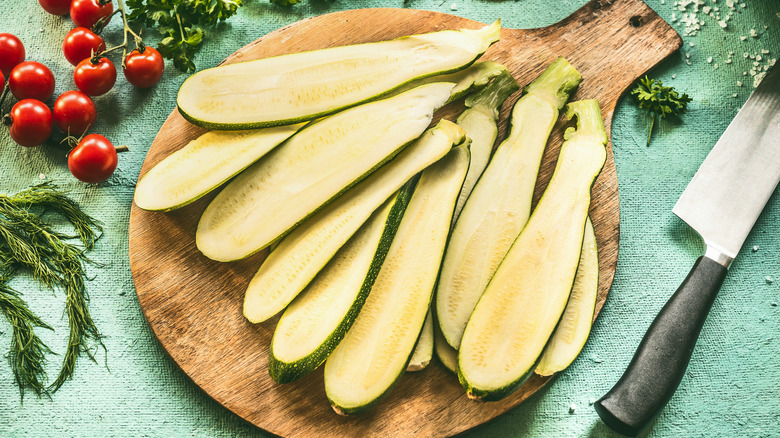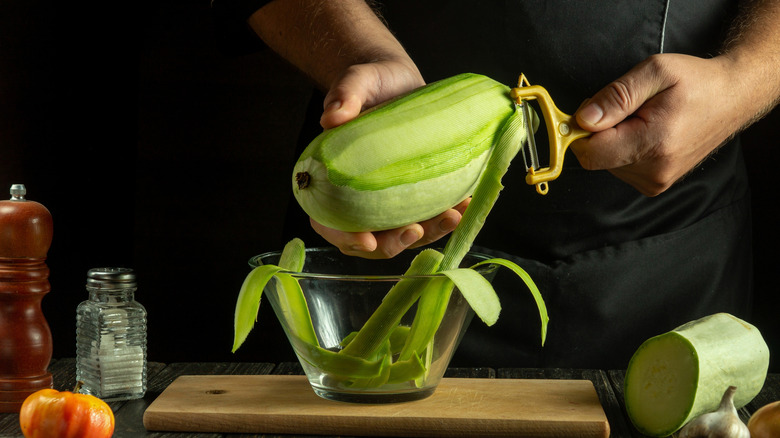Should You Be Peeling Zucchini Before Eating It?
Zucchini is always a great veggie to have on hand. You can turn zucchini into a pesto sauce, make brownies, or spiralize your zucchini into zoodles – the sky is your limit. Plus, its high nutritional content means there are plenty of health benefits going into your dish — and there are so many non-boring dishes to make with zucchini. But when you're prepping your zucchini, you might find yourself asking: To peel or not to peel? Well, we'd advise against it.
Zucchini skin is very thin and tends to cook and soften without a problem, so most of your dishes will be texturally unaffected. In fact, the skin helps the zucchini remain intact and prevents it from going overly soft or mushy.
In terms of nutrition, you're also removing a big chunk of nutrients if you peel your zucchini. The skin contains fiber and most of the antioxidants like carotenoids, which help protect our bodies from harmful free radicals.
Should you ever peel zucchini?
There are a few exceptions where peeling your veggie might be worth it, like if you have an exceptionally large zucchini. These tend to have tougher, more bitter skin, which might be noticeable in your dish. If you're worried about the texture or taste being affected, peeling it is a good solution.
Additionally, if you're making something like soup or puree where an ultra-smooth consistency is key, peeling your zucchini will guarantee the right texture. Another example of when peeling might be worth it, is if your zucchini skin looks damaged or blemished. But if there's only a few dodgy spots, feel free to leave the rest of the skin on.
Although zucchini tends to have low amounts of harmful pesticides, peeling your veggie is an easy way to be sure you're not ingesting any. If your produce isn't organic, you can soak your zucchini in a baking soda and water or vinegar and water mixture to remove most of the pesticides. Ultimately, it's up to you – but in our opinion, peeling is more hassle than it's worth.

